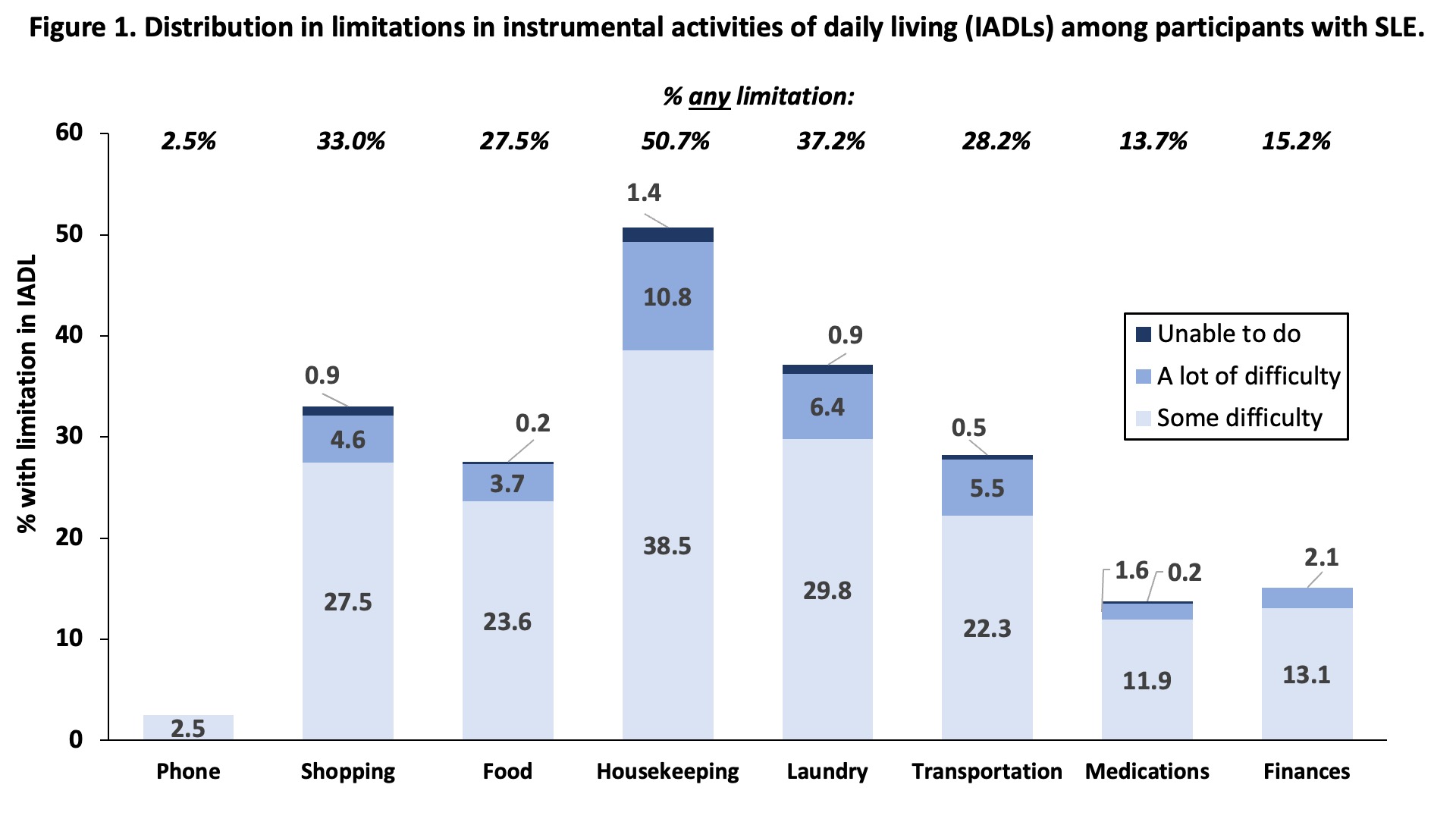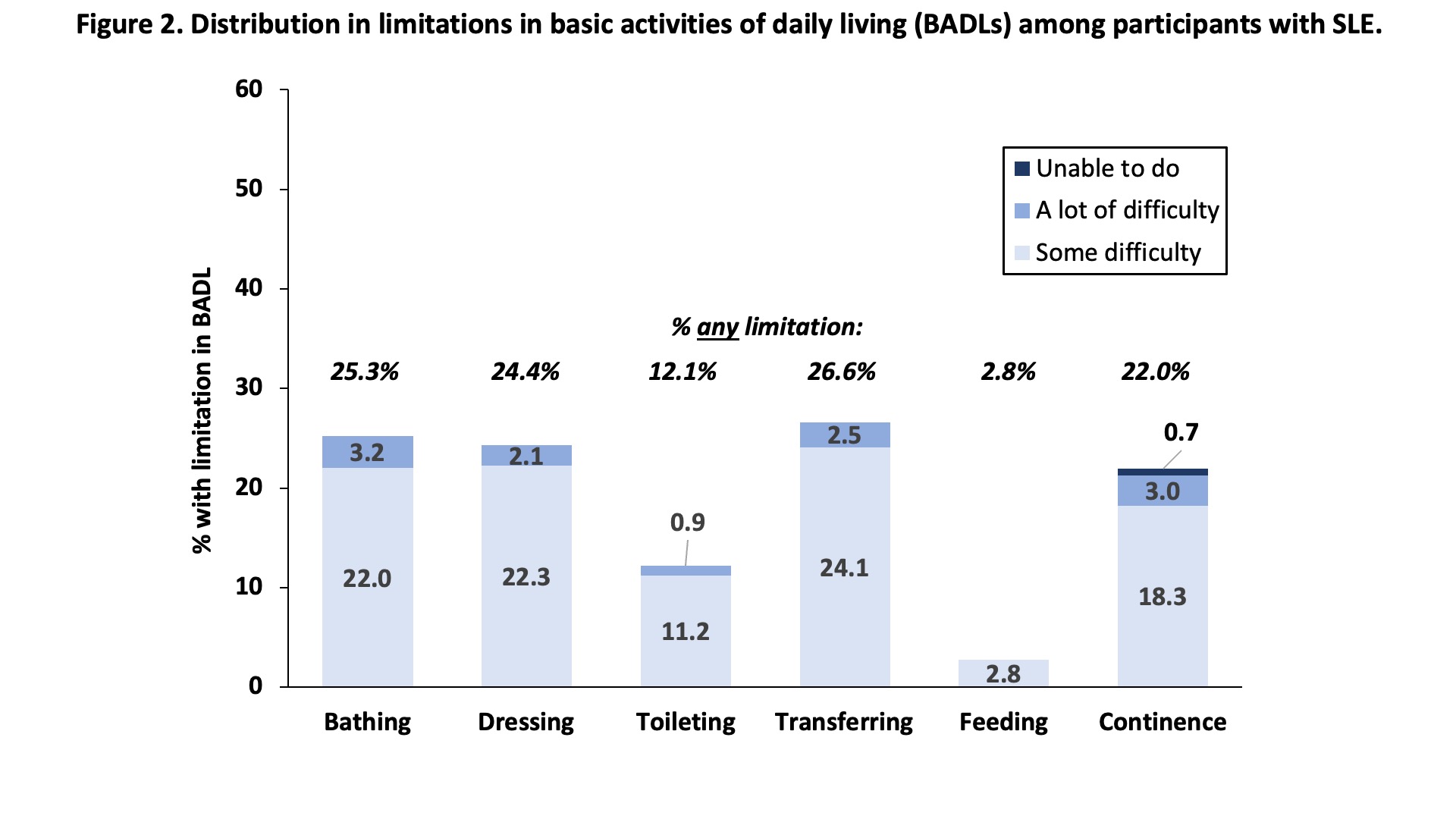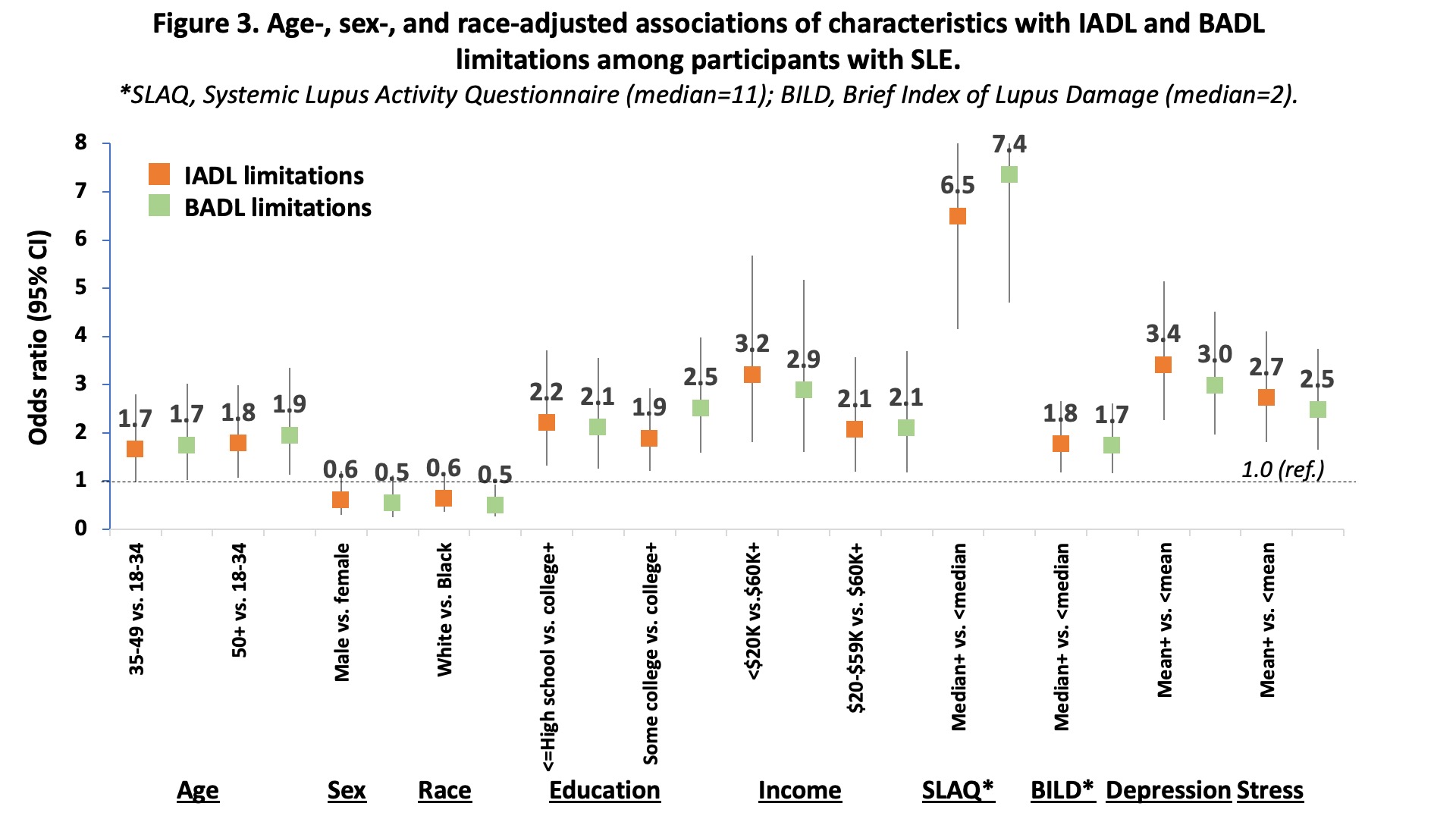Session Information
Session Type: Poster Session A
Session Time: 10:30AM-12:30PM
Background/Purpose: A better understanding of the capacity of individuals with SLE to perform routine daily life tasks is needed to effectively support the independence and quality of life of this rapidly aging population. To begin to address this gap, we aimed to estimate the burden of, and identify potential correlates of, limitations in activities of daily living (ADLs) among a population-based, primarily Black U.S. cohort of individuals with SLE.
Methods: Participants with validated SLE were recruited from an ongoing population-based cohort [Georgians Organized Against Lupus (GOAL)] for a single study visit (10/2019-5/2022), during which they reported their ability to independently perform various instrumental ADLs (IADLs) and basic ADLs (BADLs). Limitations were defined as having at least some difficulty performing at least one of the IADLs or BADLs. Descriptive statistics were calculated and age-, sex-, and race-adjusted associations [adjusted odds ratios (aORs)] of various participant characteristics with IADL and BADL limitations were assessed with logistic regression.
Results: Participants (N=447; mean age, 46 years; 92% female and 83% Black) commonly reported limitations in ADLs. More than half of participants (56%) reported IADL limitations, including limitations in housekeeping (51%), laundry (37%), and shopping (33%) (Figure 1); 44% reported limitations in independently performing BADLs, including transferring (27%), bathing (25%), dressing (24%), and continence (22%) (Figure 2). Higher disease activity (> vs. < median) was strongly associated with limitations in IADLs and BADLs (6.5-fold and 7.4-fold higher odds, respectively); higher scores for depression and perceived stress, lower educational attainment and income, and older age were also associated with ADL limitations (Figure 3).
Conclusion: Limitations in both IADLs and BADLs may be common in SLE, with prevalence estimates higher than those reported among older adults and those with several chronic diseases (including cardiovascular disease, chronic obstructive pulmonary, and cancer). Additionally, these limitations may be more likely among those who report more disease activity, depressive symptoms, and perceived stress and those who are older. Research to explore evidence-based strategies to prevent, mitigate, and support these limitations in the SLE population — thereby maximizing patients’ independence as they age — is warranted.
To cite this abstract in AMA style:
Plantinga L, Yazdany J, Hoge C, Dunlop-Thomas C, Katz P. Limitations in Activities of Daily Living Among Individuals with SLE [abstract]. Arthritis Rheumatol. 2024; 76 (suppl 9). https://acrabstracts.org/abstract/limitations-in-activities-of-daily-living-among-individuals-with-sle/. Accessed .« Back to ACR Convergence 2024
ACR Meeting Abstracts - https://acrabstracts.org/abstract/limitations-in-activities-of-daily-living-among-individuals-with-sle/



